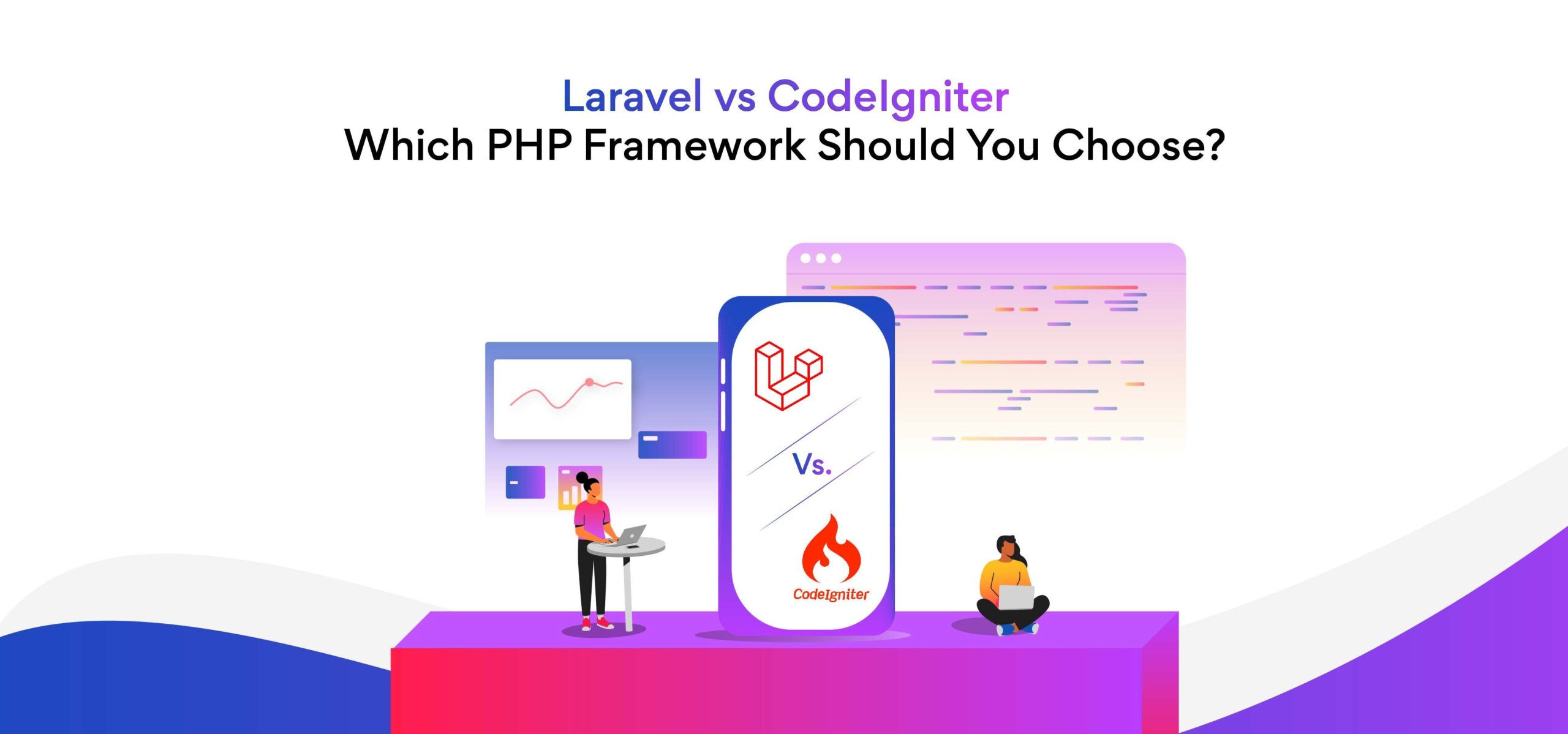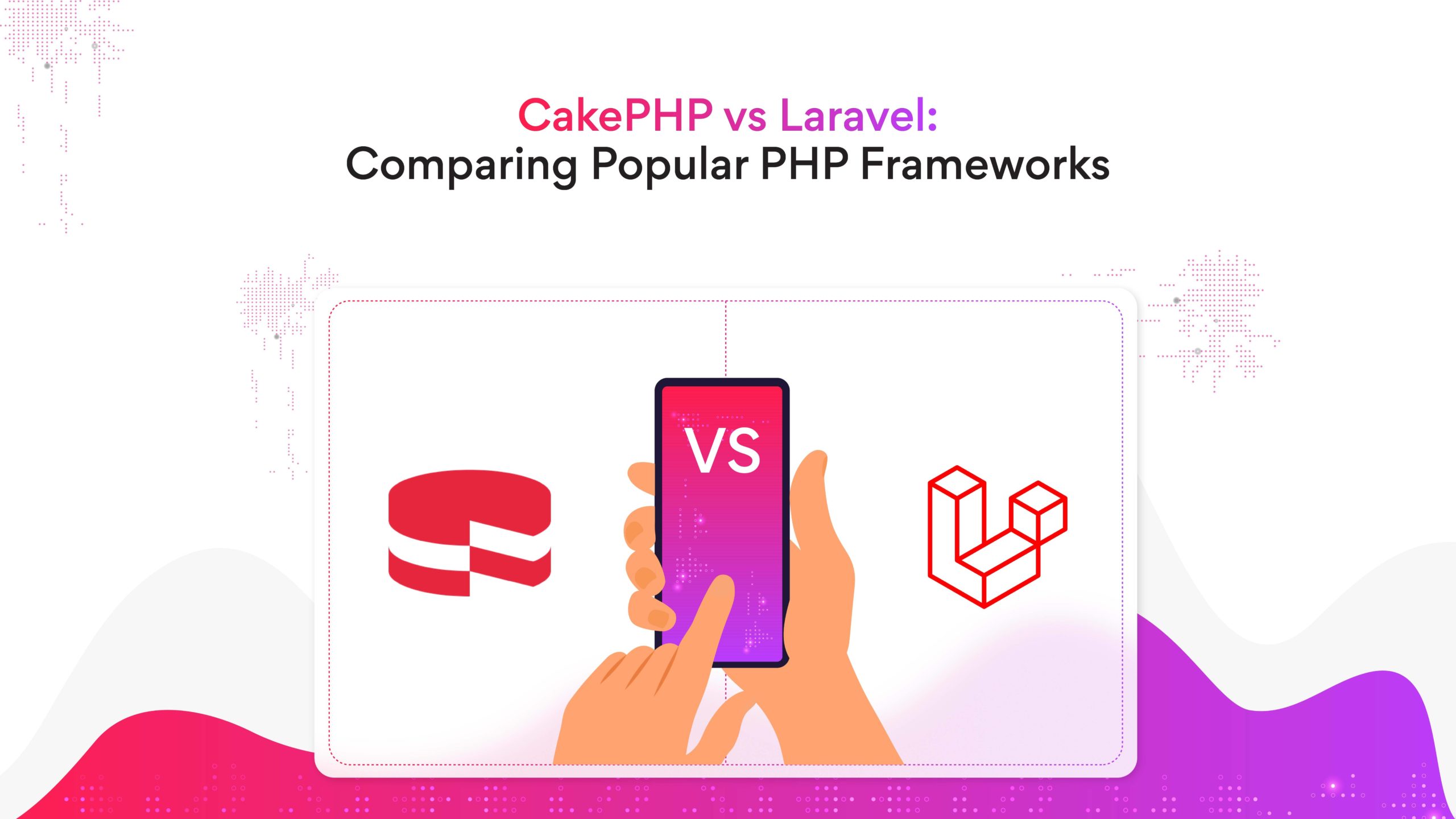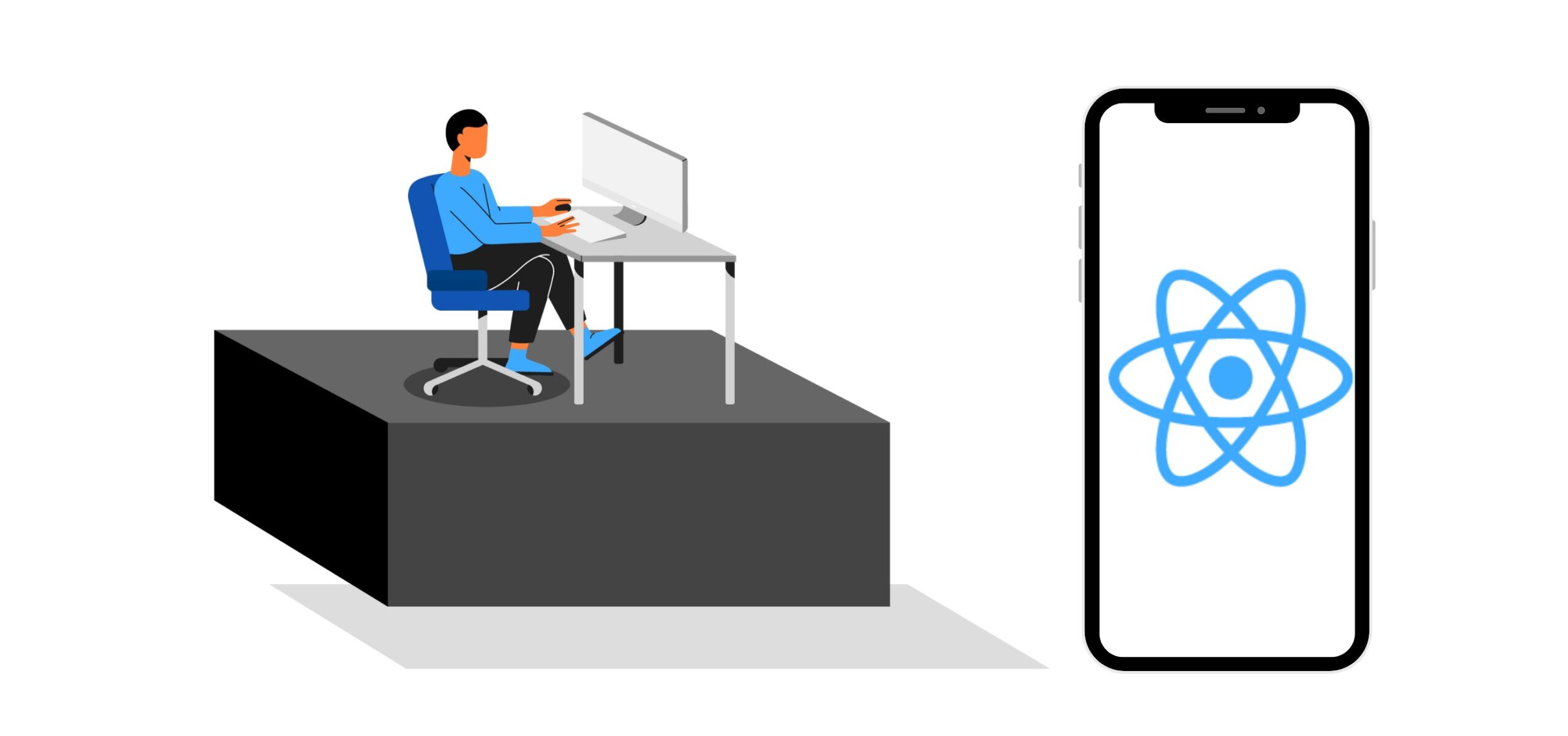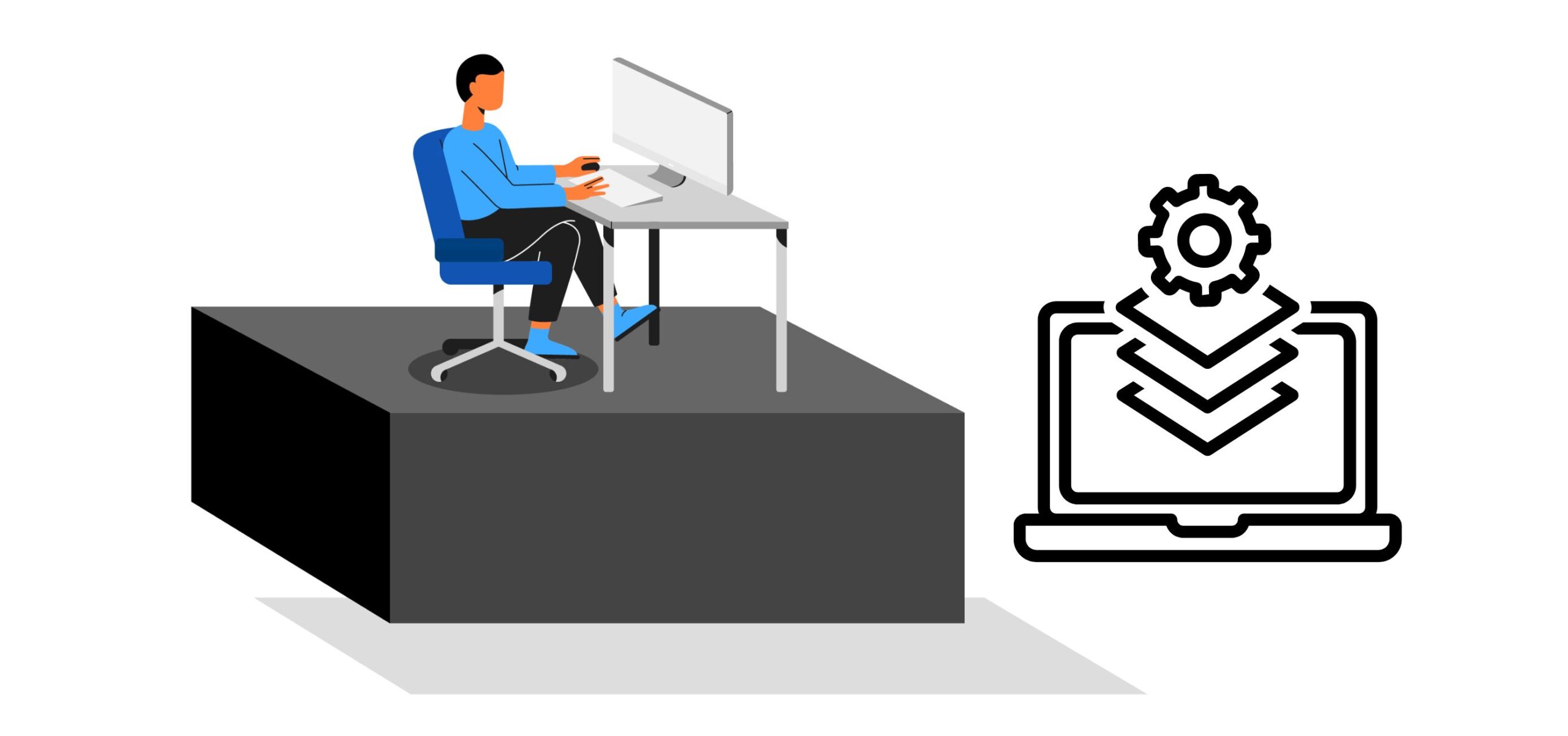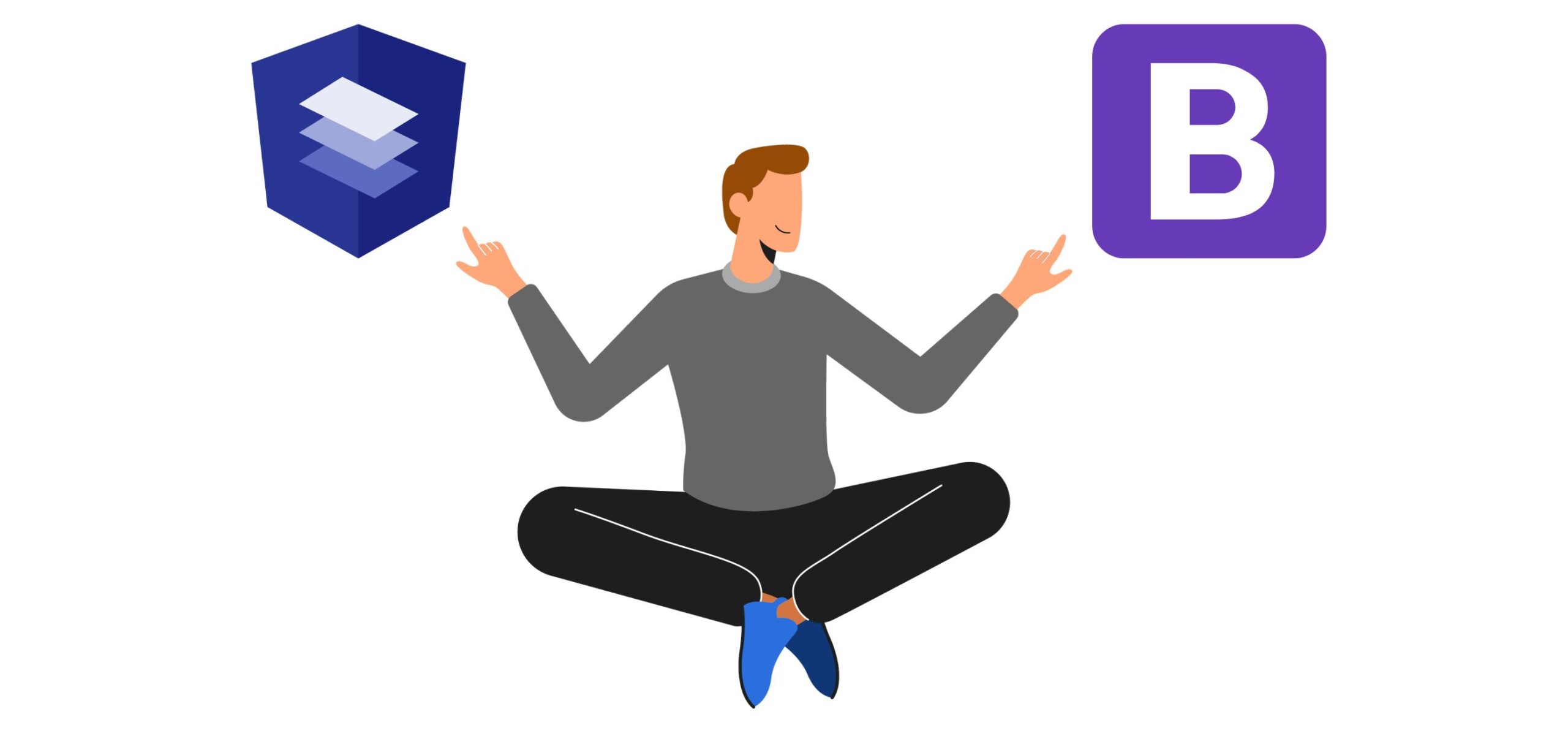Laravel vs CodeIgniter: Which PHP Framework Is Better?
Is Laravel good for big projects? What are the advantages of CodeIgniter? Which is easy to learn, Laravel or CodeIgniter? Is Laravel front-end or back-end? Which is the fastest PHP framework?
This blog will help you answer these questions.
Developers can choose between CodeIgniter and Laravel as per the project requirement, framework knowledge, use cases, etc. A detailed comparison between these two popular PHP frameworks can help developers make the right choice.
What is Laravel?
Laravel is an open-source PHP framework that helps build robust applications with less code. Based on model-view-controller architecture, the Laravel framework offers an integrated packaging system and a devoted dependency manager.
Applications built using the Laravel framework are highly scalable and have easy-to-maintain codebases. Laravel features include an extensive library with reusable components, web development tools, command line interfaces, and object-relational mapping, among others.
What is CodeIgniter?
CodeIgniter is an open-source PHP framework that helps build dynamic, fully functional web pages. CodeIgniter offers a rich set of libraries to perform common and repetitive tasks. CodeIgniter framework uses a simple interface and logical structure to access the set of libraries.
Applications built using CodeIgniter have excellent database and session management. CodeIgniter features include flexible URL routing, full page caching, error logging, and form and data validation, among others.
According to statistics, 119,000 websites are currently using CodeIgniter, whereas 6,45,000 websites are using Laravel. Popular websites built using CodeIgniter include Buffer, The Mail and Guardian, Nissan, and Creditflux. On the other hand, popular websites built using Laravel include Watchseries, Laracast, Alphacoders, and Barchart, among others.
Now, let’s compare the two.
1. Laravel vs CodeIgniter: Unit Testing
Laravel provides a built-in unit testing feature named PHPUnit. PHPUnit allows developers to check the application code thoroughly.
CodeIgniter does not offer any built-in unit testing support. Developers using the CodeIgniter framework must use third-party unit testing tools to check code quality and application
2. Laravel vs CodeIgniter: Learning Curve
CodeIgniter framework has a shallow learning curve making it easier for developers to learn and practice with CodeIgniter.
Laravel framework has a steep learning curve, with developers taking some time to learn and practice with Laravel.
3. Laravel vs CodeIgniter: Authentication
In CodeIgniter, developers must write custom CodeIgniter extensions for user authentication and authorization.
On the other hand, Laravel offers the authentication class feature to execute authentication and authorization for web applications.
Related Post: CakePHP vs Laravel: Here’s What You Should Know about These Popular PHP Frameworks
4. Laravel vs CodeIgniter: HTTP routes
By using the Laravel framework, developers can define custom HTTP routes. Developers can also create a specific URL for each HTTP route.
CodeIgniter uses the response and request mechanism to set up HTTP routes. Developers must create paths to facilitate data transmission.
5. Laravel vs CodeIgniter: DBMS support
The Laravel framework offers support for Oracle, IBM, DB2, PostgreSQL OrientDB, JDBC, and MYSQL among others.
CodeIgniter also offers support for the above-mentioned database management systems, excluding IBM and JDBC. Additionally, the CodeIgniter framework supports Microsoft BI and MongoDB.
Check out this post to learn more about MongoDB and its features.
6. Laravel vs CodeIgniter: Modularity features
Laravel provides in-built modules that allow developers to divide parts of a big project into smaller modules. By doing this, developers can work on them separately.
Unlike Laravel, the CodeIgniter framework does not have any in-built modules. Developers must use extensions to create and maintain separate modules.
What are the advantages of Laravel?
The advantages of Laravel include
- Proper documentation
- Integration with mail services
- Fewer repetitive tasks
- Short product development cycle
- Excellent exceptional handling
- Smooth database migration
- Cache integration
- High level of security
- Fast debugging
- Automated testing
What are the advantages of CodeIgniter?
The advantages of CodeIgniter include
- Instant configuration
- Secure platform
- User-friendly interface
- Migration support services
- Community support
- Test-driven development
- Error-handling
- Website customizability
- Lightweight framework
Other key differences between Laravel and CodeIgniter
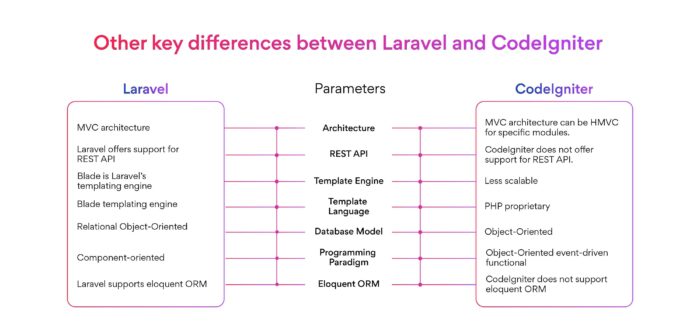
7 differences between Laravel and CodeIgniter.
Summary
The Laravel framework was launched five years after the CodeIgniter framework. Laravel is an advanced PHP framework that provides seamless updates and integration. In the Laravel vs CodeIgniter battle, Laravel does have the edge over CodeIgniter because of the elegant and advanced features it provides.
However, developers must choose their PHP framework as per the project’s requirements. In addition, they must carefully weigh the pros and cons of each PHP framework to make an informed decision.
Are you an experienced Laravel or CodeIgniter developer looking for a job?
Turing can help.
Turing offers remote software developers long-term jobs with unmatched compensation at top US companies. Visit our Jobs page to know more.
FAQs
- Is Laravel good for big projects?
Laravel is a flexible PHP framework that offers a wide range of features to successfully implement big projects.
- Is Laravel front-end or back-end?
Laravel is a back-end PHP framework that helps you build modern websites and applications.
- Is CodeIgniter easy to learn?
Yes, CodeIgniter is quite easy to learn for developers.
Join a network of the world's best developers and get long-term remote software jobs with better compensation and career growth.
